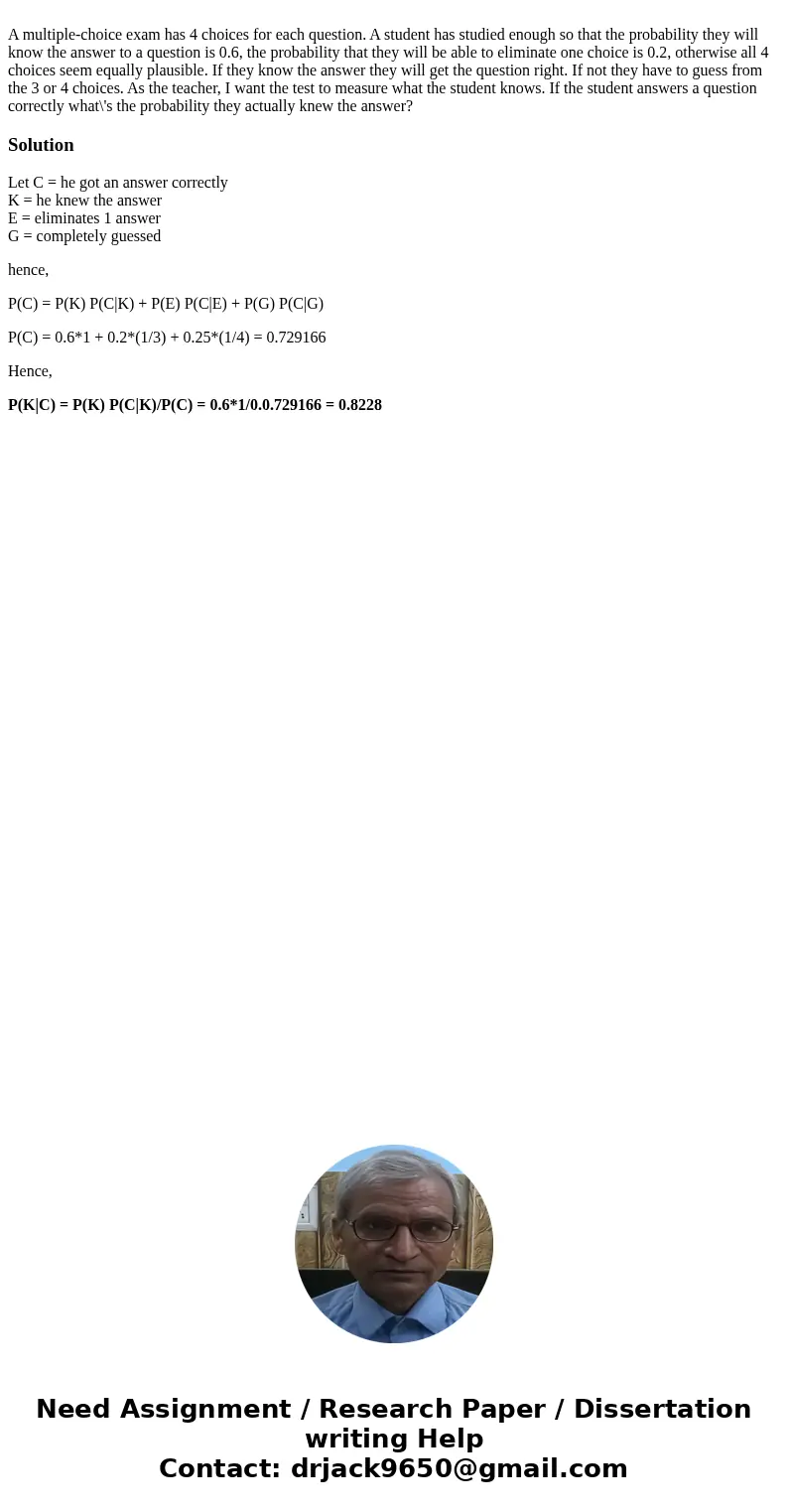A multiple-choice exam has 4 choices for each question. A student has studied enough so that the probability they will know the answer to a question is 0.6, the probability that they will be able to eliminate one choice is 0.2, otherwise all 4 choices seem equally plausible. If they know the answer they will get the question right. If not they have to guess from the 3 or 4 choices. As the teacher, I want the test to measure what the student knows. If the student answers a question correctly what\'s the probability they actually knew the answer?
Let C = he got an answer correctly
K = he knew the answer
E = eliminates 1 answer
G = completely guessed
hence,
P(C) = P(K) P(C|K) + P(E) P(C|E) + P(G) P(C|G)
P(C) = 0.6*1 + 0.2*(1/3) + 0.25*(1/4) = 0.729166
Hence,
P(K|C) = P(K) P(C|K)/P(C) = 0.6*1/0.0.729166 = 0.8228

 Homework Sourse
Homework Sourse